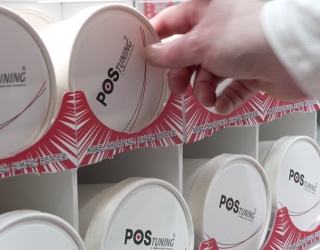As more retailers of all sizes invest in mobile point-of-sale (mPOS) technology, which is now largely regarded as a must-have to remain competitive, leading enterprise mobility device provider Infinite Peripherals, Inc. (IPC) shares the best practices of mPOS implementation to maximize success.
With more than 400,000 mPOS devices in the field today, IPC offers recommendations from the experiences of its own team and its customers in a new white paper, “Best Practices for Implementing mPOS at Retail,” which is available for free download at http://bit.ly/1oDeFk5.
“We wanted to share the lessons we have learned over many years with retailers, who are continually faced with the rapid pace of technology development today.”
“As the first company to mobilize iOS for the enterprise, IPC has a valuable history helping 30 percent of the top 20 U.S. retailers adopt mPOS in order to boost associate productivity and exceed their customers’ expectations – ultimately to build their business,” said Andrew Graham, president and co-founder of IPC. “We wanted to share the lessons we have learned over many years with retailers, who are continually faced with the rapid pace of technology development today.”
Some of the recommendations for mPOS pre-implementation, deployment and measurement shared in the white paper include:
Pre-Implementation
A critical first step is for retailers to identify their motivation for mobile, beyond simply a “me-too” decision that aligns with their competitors. This sets the stage for developing important one-, three- and five-year strategies for mPOS that outline goals and consider software and hardware capabilities, as well as scalable capacities.
Merchants must determine if they will develop their own software, purchase an app off the shelf or hire consultants to create software that is optimized for mobile and designed with an intuitive user interface. Security clearly is a paramount concern, so retailers should work closely with reputable vendors that can provide guidance on compliance with the Payment Card Industry Data Security Standard (PCI-DSS) to help limit liability, as well as those that offer solutions that are compliant with EMV and chip-and-PIN standards.
mPOS Deployment
A pilot test period is standard to assess system performance and debug as necessary; and retailers should perform every capability multiple times to uncover and address any potential issues. Merchants can then roll out the mPOS system to their stores based on the number and location of each.
A welcome advantage of mPOS is that associate training often is quite simple – with a well-developed app and the intuitive interface of smartphones and tablets, staff typically adapt quickly and can help each other. Stores that continue to use legacy equipment should consider incentivizing associates to drive mPOS adoption as the preferred system.
Measurement
Naturally, retailers will want to evaluate the impact of the mPOS system. Areas to assess typically include sales, such as customer wait times in line, sales per hour, transaction amounts, add-on sales and more. Operations analysis can include associate productivity in inventory management and price changes.
Qualitative feedback from associates is important so that retailers can optimize the success of the mPOS system. Merchants also should invite customer input via surveys to better understand the consumer perception and experience.
Read the entire white paper here.
Source: Infinite Peripherals






